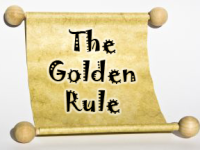by Monica Palmer
Last Christmas, I did something naughty.
I started with good intentions; I volunteered to wrap presents which would be delivered by a local charity to children in need. My task was to take the bags of donations given by generous community members and package and wrap them.
I was instructed to take the tag with the name and age of the recipient off the donation bag and affix it to the wrapped gifts for the child. On the back side of each tag was the child’s clothing and shoe sizes and a short wish list of the items the child was hoping to receive.
As I made my way through the donations, I became increasingly disheartened. Bag after bag was packed with items I wouldn’t even feel comfortable putting on a garage sale table, much less gifting a kid who may be getting nothing else for Christmas. Hardly, any of the wish list items were included in the donations.
One bag in particular stopped me in my tracks. I read the tag, and it was for an 8 year-old boy who wished for just two things: a new coat and a new bike. As the Mom of an 8 year-old boy, I cringed at the thought of this young man opening his gift boxes containing a second-hand hoodie with a slight stain on the hem, a package of socks, several used matchbox cars and a few used paper backs. I wondered if the person who donated this bag would have prepared a similar gift for his/her children or grandchildren.
I think there’s a pretty good chance most of us have stumbled across some form of the saying, “Do unto others as you would have them do unto you,” at some point in our lifetime. The maxim seems to transcend cultures and religions. There are variations on this “Golden Rule” throughout the world:
-
Christian version:
“Treat others as you would like them to treat you.”
-
Hindu version:
“Let not any man do unto another any act that he wisheth not done to himself by others, knowing it to be painful to himself.”
-
Confucian version:
“Do not do to others what you would not want them to do to you.”
-
Buddhist version:
“Hurt not others with that which pains yourself.”
-
Jewish version:
“What is hateful to yourself do not do to your fellow man. That is the whole of the Torah.”
-
Muslim version:
“No man is a true believer unless he desires for his brother that which he desires for himself.”
This “rule,” which is seemingly embraced as a guideline for the way so many are supposed to live, seems to be more of a suggestion when it comes to donating things to the poor.
Why do we continually give the poor things we wouldn’t keep or want to receive ourselves? Are we really thinking of the intended recipients, or are we just wanting to get rid of junk, so we can buy new stuff for ourselves?
There seems to be a belief that the poor should be happy with whatever they get. Some even feel the poor shouldn’t expect or even desire the things that they can’t afford to buy themselves. This seems unreasonable.
If the goal is to crush the hope and self-esteem of those in need, I suppose it makes sense to give them our cast-offs and expired food. However, if the goal is to lift the poor up, make them know they are cared for and show them there is a life worth fighting and working for, then I think we need to revisit the Golden Rule.
I invite you to consider the golden rule the next time you’re cleaning house and deciding what things to donate. Here’s an excerpt from Goodwill’s website: “Before giving your gently used items to us, ask yourself if you would give it to a relative or a friend. Our shoppers are looking for quality second-hand goods, and disposing of items we can’t sell costs a lot of money. Every dollar we spend disposing of unusable donations is a dollar we cannot spend on our services to the community.”
The same goes for food drives. Sure, you may clear some shelf space by donating that expired food, and you may feel better about not putting it in the trash, but you could very well be costing the food bank valuable volunteer time and waste removal fees to get rid of that item that wasn’t fit to be donated in the first place.
If you wouldn’t serve it to your own family, don’t donate it. It’s the Golden Rule.
I completely blame the Golden Rule for my naughty actions last year. I admit to rejecting that 8 year-old boy’s donation bag on his behalf. I could never gift that to my own son, so I would not be a part of giving it to someone else’s son.
I called my son, and we went to the store, picked out a bike, helmet, coat and a few other 8 year-old approved items to give the boy instead. (I did give him the package of socks from the original donor, because they were new, and boys always need new socks.)
That gift cost a tiny fraction of my holiday expenses last year, but it was my favorite to give. I may not have had the joy of watching the recipient open it, but my son and I discovered the secret of the Golden Rule: when you do good for others, you get a lot of goodness back for yourself.
Try it and see. Go on a Golden Rule grocery trip with your family, and shop for the things you like on your table and in your pantry. You’ll feel the difference when you give the things you want rather than the things you want to get rid of.

